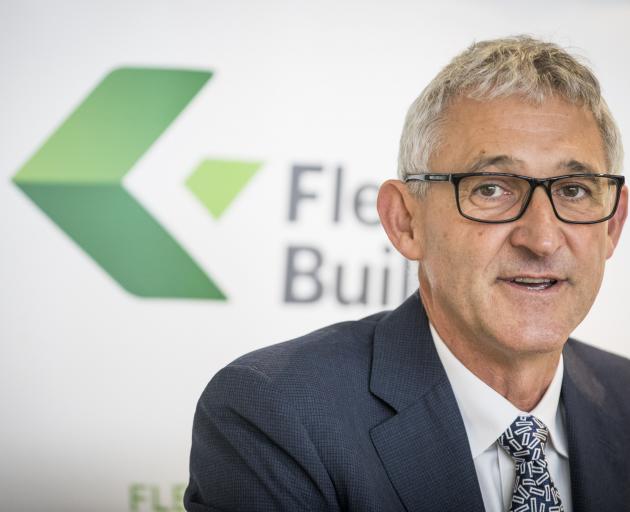
Chief executive Ross Taylor would not give guidance as to the cost of the restructuring and could not signal which units were more affected in today's media briefing.
"It's every part of the business, I'm not being evasive…the whole organisation will shrink - its proposals up and down the organisation," he said as journalists questioned which workers would lose their jobs.
Consultation has begun this week with Fletcher's employees, with 1000 jobs to go in New Zealand and 500 in Australia.
While domestically the construction firm initially took more than $60 million in government wage subsidies, it would not take further handouts after the 12-week period which expires June 26.
The next round of government subsidies requires a 50 per cent revenue decrease to qualify, from 30 per cent previously but Taylor said Fletcher would not take it.
"We are a strong independent company and its not sustainable for everyone to be dependent on government for the long term. We didn't qualify and we didn't ask for it, and it's important to be independent."
Taylor and Fletcher's board has also taken a 30 per cent pay cut until September.
The company is also looking at its non-people costs including exiting unprofitable product lines, moving more employees into its Penrose headquarters, reducing professional services costs and it will look at reducing supply chain costs as well.
Shares in the company were down by 2.7 per cent after opening at $3.40 and have lost 35 per cent this year.
Outlook
Taylor said since restrictions loosened, Fletcher's New Zealand business was trading at about 80 per cent of forecasted revenue in May, while Australia was trading at 90 per cent.
The chief executive said he was trying to make the best sense he could out of economic forecasts as the depth and duration of covid-19's impact was unclear.
Fletcher expects a market downturn of 20 per cent in New Zealand and 15 per cent in Australia.
Its group revenue is 50 per cent exposed to residential construction in both New Zealand and Australia. Locally, it predicts a market downturn of 20 per cent overall, due to a forecast 30 per cent decline in residential consents in the 2021 financial year, from 36,000 to 25,000.
In its commercial business it forecasts a decline of 15 per cent for FY21.
Covid-19 had also meant social distancing on construction sites had reduced productivity – for example Taylor said at Commercial Bay there had been 1,800 subbies but that had halved since work recommenced on the Precinct Properties' Auckland site.
One of the major commercial projects to be delayed is Auckland International Airport's domestic jet hub, which Taylor just said reflected the economic impact of covid-19.
Fletcher's infrastructure business is estimated to decline by 10 per cent in FY21 then grow steadily. Taylor said that government spending on infrastructure was welcomed but the firm's greater exposure to the residential market had driven its broader thinking.
Fletcher's manufacturing and distributions business are expected to record positive EBIT before significant items across May and June, but at lower levels than normal.
Balance sheet
The company said its net debt was $650 million at the end of April, with its leverage ration at 0.8 times of operating earnings, which is below the bottom end of its target range.
The company had cash on hand at $970 million and undrawn credit of $525 million.
Fletcher said it has reduced its capex by about $60 million, which means total expenditure for the 2020 financial year is now expected to be $240 million compared to a pre-covid-19 expectation of about $300 million.
Core capex in the 2021 financial year will range from $125 million to $150 million, focused mostly on safety and maintenance.
It would continue its commitment to a new Winstone Wallboards plant in Tauranga, with $50 million to be spent in FY21.
- BusinessDesk













